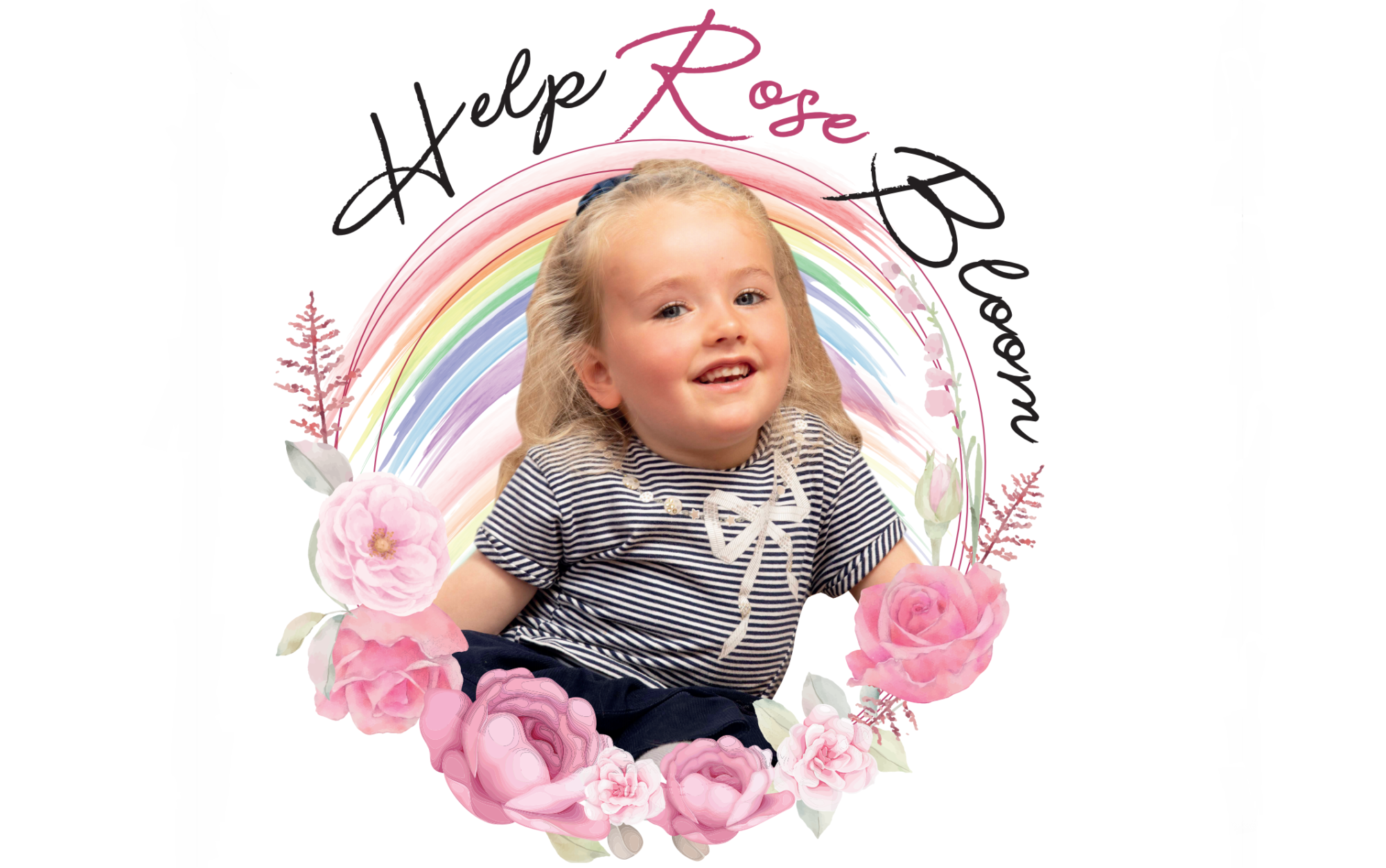Roses parents began to notice that she wasn’t meeting the milestones that their first child easily achieved at an early stage and began to worry. When they realised that she did not have the strength to hold her head or her upper body at a stage when most or all children would have been able to do so, when she struggled at weaning stage to take any solids and as she began to have recurrent chest infections by the age of 4 months, they began to further investigate why this was the case. Following comprehensive testing Rose was diagnosed at 9 months with SNA type 1. Rose began her treatment of Spinraza shortly afterwards. This diagnosis turned Roses, her parents and her family’s world upside down and in one sentence Rose’s future became very uncertain and a future that would depend on the support of her family, the medical profession and the community at large.
Rose currently receives Spinraza via a lumbar puncture, this treatment has put a stop to the progression of her SMA but cannot reverse the toll it’s taken on her little body. Rose will be in personally funded physiotherapy throughout her lifetime to ensure she remains as strong as she can. She will need to receive Spinraza every 4 months for the rest of her life.
Rose’s parents, Karen and Thomas, are very progressive regarding her treatments and lifestyle management and their determination with Rose’s therapies has led to a very impressive progression in her physical abilities. Her progress has even surprised the medical professionals and Rose continues to exceed their expectations. This progression is mainly due to the intensive physiotherapy which Rose attends twice a week and the incorporation of extensions of her physiotherapy routine at home on a daily basis. After 3 years of twice weekly physiotherapy, Rose can now stand with aid for 10-15 seconds, which is MAJOR for a child with SMA Type 1, but as you can imagine, the journey ahead is daunting. This private physiotherapy alone comes at a cost of approximately €10,000 per year. Caring for Rose is a full-time job and Karen provides this care as well as running the house and being mom to Rose’s older sister, 6-year-old Kate, while Thomas is away working as a truck driver. She regularly meets with her multidisciplinary healthcare team to ensure that Rose is getting the best possible treatment and her determination is also a fundamental element in Rose’s progress.
This Summer, Rose will undergo Spinal Surgery to insert spinal rods which will hopefully treat a significant curvature on her spine caused by scoliosis, due to the postural muscle weakness within her body. Early intervention is key to long-term success in treating this aspect of the condition. The surgery is considered high risk for Rose due to her condition but necessary so that Rose can progress further. As Rose is undergoing this surgery at such a young age, she will require twice yearly medical procedures to adjust the spinal rods that will be fitted during the initial surgery, to compensate for her growing body.
For you or I, even 1 surgery per year would be daunting, however, for 4 year old Rose, she now faces 5 major medical procedures on a yearly basis for the foreseeable future to treat her SMA and her scoliosis.
The current Covid pandemic has raised some serious concerns for Rose as respiratory illnesses are a common feature of SMA Type 1. This could also be detrimental to Rose as her lack of muscle tone in general can make common infections very serious. Previously Rose has been hospitalised as a result of what would be considered minor chest infections to her peers. This has made Rose’s life quite isolated, so while she may see her cousins often enough, she does not see her friends for any social outings. Karen does her best to ensure that Rose lives with a relatively normal quality of life but needs to protect her from these common ailments. Keeping Rose healthy while providing a normal life is a constant worry and battle for her family, Karen, Thomas and her big sister Kate.
Extremely difficult and heart-breaking questions such as “Mommy, when will I be able to hold your hand to walk to school” and “Mommy, why can’t I play like the other kids” are now common questions for Rose. After turning 4 recently, she said “Mommy, I don’t want to be 4, I want to be a baby forever because I can’t walk”. This is Rose’s very sad reality, but highly indicative of the level of awareness that Rose already has in her brilliant and clever mind. It is Karen and Thomas’s dream that one day Rose will walk (aided) and be able to do the simple things that we take for granted like, being able to move from a lying to a sitting position. Not only would this be a monumental triumph for her it would also be a monumental triumph for everybody who has and will be involved in her painful yet beautiful journey.
